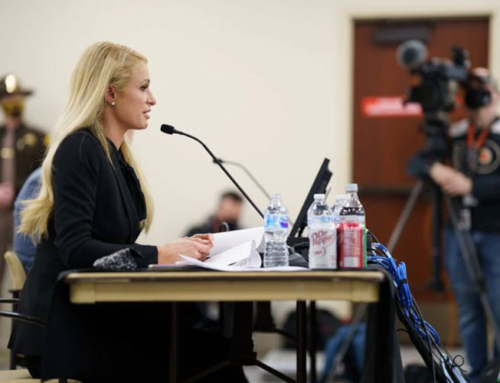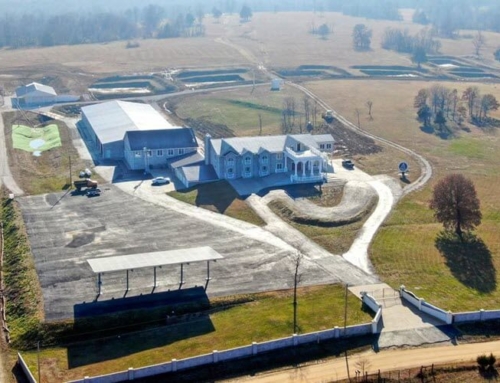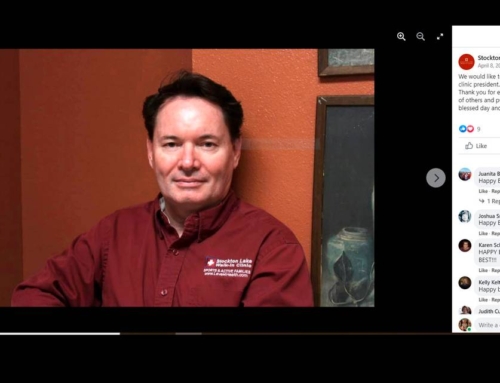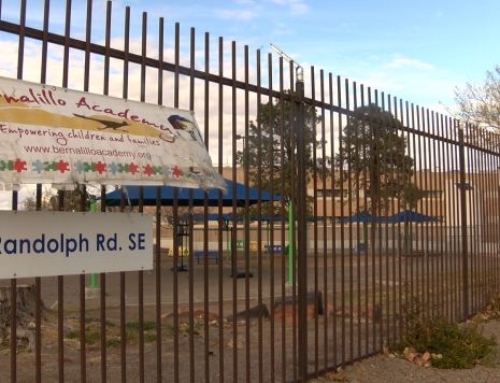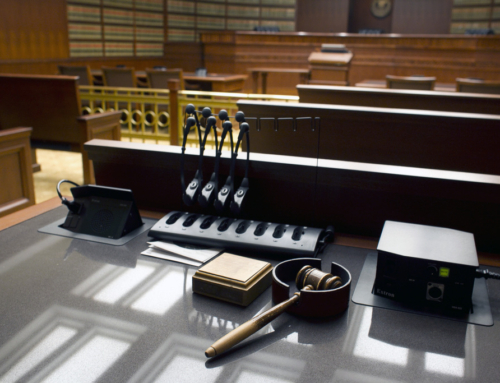For months, Trisha Leon called and emailed everyone she could think of: dozens of newspapers and TV stations, state lawmakers and federal agencies. She sent pleas to lawyers and civil rights agencies, even reaching out to celebrity Paris Hilton, podcast host Joe Rogan and filmmaker Michael Moore.Trisha was scrambling to find help for her 12-year-old nephew, Logan. He was taken into Idaho custody while traveling through the state with his mother, Francesca Leon, on their way from Auburn, Washington, to Utah.Logan, who had never been to Idaho before, ultimately spent nearly eight months in Idaho Child and Family Services custody before he was released Oct. 29 to his mother. Both women said they felt helpless, caught in a system that is difficult and confusing to navigate. What’s more, they found themselves with few places to turn for help.Idaho is one of 11 states that have no designated mediator to address issues or complaints about child protective services — the department itself or the court handles them. Any issues the Leons had, from reporting Logan’s allegations of abuse at residential facilities to clashes with his social worker, went back to Idaho Child and Family Services.Patrick Dowd, director of the Washington State Office of the Family and Children’s Ombuds and vice president of the U.S. Ombudsman Association, said offices like his are crucial in fostering accountability and transparency in departments that are often opaque. Ombuds offices investigate complaints, offering a confidential outlet to address the public’s concerns free from fear of retaliation.Trisha, who was on the outskirts of the case as a hopeful foster placement, felt so cut off from her nephew that she sought help from national organizations that raise awareness of abuse in youth facilities. She finally found support from an unlikely ally: Hilton, who has spoken out about alleged abuse she suffered in a Utah facility as a teen — one of the facilities Logan spent time in.The Leon sisters said without an impartial agency to go to, Logan was left in foster care institutions months longer than necessary, as his allegations of abuse in those facilities left them scrambling to find a solution. Though the Idaho Department of Health and Welfare, which oversees Child and Family Services, has said many foster care cases follow the same timeline as Logan’s, the Leons think Trisha’s efforts, along with the high-powered support she found, are what finally led to Logan’s return.“If she didn’t do what she did, he would’ve never came home,” Francesca said.STATE CUSTODY, PROVO CANYON SCHOOL AND PARIS HILTON
Logan was taken into custody on March 7. He and Francesca, his mother, were driving through Idaho from Washington on their way to Utah, where Francesca planned to settle. Kuna Police carried out a welfare check requested by Trisha and put Francesca under a mental health hold. The circumstances were the start of a rift between the sisters, who would spend months vying for custody of Logan and disagreeing on the best course of action for his care.When Logan first entered state custody, Idaho child services sent him to two group foster care homes. One of them wasHays House, a facility run by the Idaho Youth Ranch where workers recently quit en masse amid allegations of a toxic work environment and safety concerns. Court documents say Logan was removed from both group homes “due to his behavior toward other residents, not listening or engaging.”“He was acting out on purpose so he could go home,” Francesca said.On March 14, he was briefly placed with a family friend who lives in Idaho. Francesca, who had been released from the hospital by then, took Logan from the friend’s home to Utah, where police thentook him back into Idaho child services custody. He was then placed with a private foster family for about a week before moving once again.At a March 26 court hearing, Trisha Leon testified to an Ada County judge that she would like to complete a home study. If completed, it could allow her to take custody of her nephew. The same day, Logan was sent to Provo Canyon School, a Utah facility that describes itself as a behavioral health center. Idaho Department of Health and Welfare records show the state has sent 18 children to that facility since 2010.In a video interview with the Idaho Statesman, Logan said it felt like no one really wanted him or could handle him.Citing confidentiality, IDHW declined to say why Logan, then 12 years old, was placed at Provo Canyon School. The agency contracts to place foster children with at least two dozen facilities in Idaho and at least a dozen more in the region.But the placement concerned Trisha, who at the time was not speaking with her sister. In a March 30 email to the Ada County prosecutor tasked with Logan’s case, Trisha said she hadn’t been informed that her nephew would be placed in the program.Trisha said for nearly two weeks after Logan first arrived at Provo Canyon School on March 26, he was not allowed to receive phone calls or letters. When Logan finally called her on April 8, he alleged he was placed in isolation as part of a “stabilization” phase of its child trauma treatment plan.“You stay in there for a week and do nothing but eat and just sit there,” Logan said.In phone calls reviewed by the Statesman, Logan told his aunt that he “was punched in the stomach multiple times (by another resident) and it hurt really bad.” He told his mother the same thing, adding that he was also hit in the face.A spokesperson for Provo Canyon School did not respond specifically to questions about Logan’s claims. Instead, the spokesperson sent a media statement from August that says the school does not “condone or promote any form of abuse” and reports alleged abuse to law enforcement and state authorities.Following Logan’s claims of abuse, Trisha began contacting anyone she could think of to help her nephew, from local media outlets to Utah Gov. Spencer Cox and the Utah Division of Child and Family Services. She described a typically sweet boy in panic mode after being separated from his family — and his emotional support dog. (The dog was eventually returned to Francesca but ran away during a thunderstorm prior to Logan’s return.)Many of her letters included photos of Logan, an energetic boy with brown hair that arches over one eye in a pronounced cowlick, beaming next to his aunt or hamming it up for the camera. Trisha also collected letters from family friends, teachers and members of Logan’s church to attest to his “tenderhearted,” “sweet” character.In June, Trisha completed home visits with the Washington Department of Children, Youth and Families. She also reached out to Guy Stephens, the founder of the Alliance Against Seclusion and Restraint, a group that advocates to outlaw practices it says traumatize children, particularly those in institutional care. Stephens began working on Logan’s case, connecting Trisha with a similar organization, Breaking Code Silence, the co-founder of which also spent time at Provo Canyon School. That’s how Trisha got in touch with Paris Hilton.HILTON: ‘I KNOW HOW IT IS’ AT PROVO
At 16, Hilton, a hotel heiress and socialite, was sent by her parents to the same Provo Canyon School facility where Idaho child services sent Logan (though the facility has since changed ownership). Last year, she went public with allegations that she suffered physical and mental abuse at the Provo Canyon School as a teenager in the 1990s. Earlier this year, Hilton and Breaking Code Silence Government Relations Director Caroline Cole lobbied the Utah Legislature for more oversight of institutions like Provo Canyon School.Hilton testified that she faced physical, verbal and mental abuse at the school, spent days in isolation and was heavily medicated.“Although Provo Canyon School marketed itself as a premier treatment center, it was as if hell itself was on Earth,” Hilton said. “I cried myself to sleep every single night, praying I would wake up from this nightmare.”The legislation, which Utah lawmakers passed, banned facilities like Provo Canyon from imposing punishments such as spanking, hitting and denial of food and water. In October, Hilton and Breaking Code Silence representatives visited Congress to argue for nationwide reform of youth behavioral facilities.In subsequent conversations with her nephew, Trisha said, he compared Provo Canyon School to a prison. Logan told his aunt that he overheard staff saying students who get into fights can be left to “duke it out.” Logan also alleged he was slammed against a wall when a staff member separated him and another student. A June 21 email from a Provo Canyon School therapist to Logan’s mother and his Idaho caseworkers said Logan had bruising on his arm from being put in a physical restraint technique hold after “trying to hit staff with his shoulder.”Logan’s allegations echo numerous others about Provo Canyon School. A Salt Lake Tribune investigation turned up decades of complaints about the school from former residents who said they were physically assaulted by staff or other residents, left in isolation and medicated to the point of feeling “like a zombie.”Though Utah officials have investigated hundreds of complaints against the facility in the last few years, they’ve “substantiated” only 27, the Tribune reported. Still, it nearly had its license revoked numerous times, including as recently as 2015 and 2013 when residents were injured while being restrained. The facility has also been reprimanded for locking its isolation rooms, which is a violation of Utah regulations.The more Trisha learned about Provo Canyon School’s history, the more alarmed she became. When she heard that Hilton was interested in her nephew’s case, she said she felt hopeful for the first time.“I thought that if somebody famous knew about what was going on, it could get some media attention so we could get some sort of justice,” Trisha said. “I felt like I couldn’t fight it alone after what I was experiencing.”In July, Hilton recorded a video of encouragement for Logan that Trisha shared with her nephew. Hilton told the boy that she had spent time at Provo Canyon School, too. She urged him to stay strong.“I’m so sorry for what you’re going through at Provo,” Hilton says in the video. “I know how it is. And I just want to let you know that myself and so many others are out here fighting for you and all the other children in that horrible place.”In an emailed statement to the Statesman, Hilton elaborated. She knew what it was like to feel alone and helpless at Provo Canyon School, she said.“I sent (Logan) a personalized video because I wanted to make sure he stayed hopeful and knew that advocates were tirelessly fighting for him as well as the thousands of other children in institutional settings,” she wrote. “We won’t stop until every child is safe.”Trisha saw similarities between the abuses Hilton had described at Provo Canyon School and the incident her nephew had reported. She felt like her trust in Idaho officials, who’d promoted the facility, was broken.“When I heard him repeating things that Paris Hilton said … it was super upsetting because (Child and Family Services) assured me that he would be safe there and that they had changed owners,” Trisha said.Trisha received a foster home license on July 2. Later that month, her nephew was moved to a behavioral treatment center in Emmett: the Patriot Center. According to Department of Health and Welfare documents obtained by the Statesman, Provo Canyon requested the transfer because of Logan’s “negative behaviors.”Once in Emmett, Logan again alleged physical abuse. This time, he said his arm was twisted in a holding maneuver on July 19. A report written by Patriot Center employees said they were trying to prevent him from banging his head against a table.Trisha Leon reported the alleged abuse to Health and Welfare, as did a Breaking Code Silence employee who was legally required to report alleged abuse. Trisha said after that, she felt like Logan’s case worker’s attitude shifted. She said she felt threatened and retaliated against by Idaho Child and Family Services employees who told her they would notify the judge in Logan’s case that she had contacted the Utah governor. Trisha said she felt “demonized for sticking up for my nephew.” Citing confidentiality, Health and Welfare declined to comment on Trisha’s allegations.Documents show that on July 15, before the alleged arm-twisting incident, the department recommended Logan be sent to stay with Trisha. The document said Francesca had not participated in the tasks she needed to complete to regain custody of Logan. In an affidavit filed with the Ada County Court on July 26, after Trisha and the Breaking Code Silence employee made complaints, Logan’s case worker said “the department is no longer requesting to place Logan out of state with Ms. Trisha Leon.” The affidavit said that Francesca, Logan’s mother, had made strides toward her reunification requirements.Trisha said she was not allowed to attend the court hearing where the decision was made and the only explanation she was given was that her conversations with Logan — in which she told him she was working to bring him home — caused him to become “dysregulated.”Over the next two months, Trisha continued to work with Breaking Code Silence to try to gain custody of Logan. At the same time, in Utah, Francesca was completing the requirements to regain custody of her son, including parenting classes and home inspections. On Oct. 29, Logan was released to Francesca’s custody.Logan said his grades have improved since he was released. Francesca said he has made friends and is no longer acting out like he was in foster care.“The reason he was having anxiety is because he was miserable at those places,” she said.HILTON, ADVOCACY GROUPS PROVIDED AN OUTLET THAT IDAHO LACKS
The Leon sisters, who began speaking again after Logan’s release, didn’t always agree on the best course of action for Logan while he was in Idaho foster care. But they agree that their experience with the state agency was frustrating, confusing and, at times, left them feeling powerless.Francesca said she was told to attend mandatory parenting classes that took place at the same time as her job — and both were requirements for regaining custody.“It was an absolute nightmare trying to navigate the system,” she said.The complexity of working across state lines — between Washington, Utah and Idaho — added another layer of frustration. Francesca said when she completed portions of her custody requirements in Utah, she wasn’t sure if that had been communicated to Idaho.“The Utah social services and the Idaho social services, they weren’t talking,” Francesca said. “So I had to go back and forth, back and forth, back and forth. Like why are you not calling these people? Why are you not getting information? I did what you wanted. Why are you not doing your job?”Trisha felt similarly exasperated, describing the back-and-forth between agencies as “finger-pointing.” She felt like her concerns about Logan’s well-being weren’t being heard.“No matter what I do or who I call, there’s just no solution,” Trisha said. “You’re supposed to go up the chain when there’s a discrepancy. Every time I made a report, they would say there was no findings.”After the alleged incident at the Patriot Center, Trisha sent complaints to Idaho Gov. Brad Little, the Idaho Attorney General’s Office, the Idaho Office of Professional Licensing and various individuals in the Idaho Department of Health and Welfare.In other states, complaints like Trisha’s could’ve been brought to an ombuds office. Thirty-nine states, including Washington and Utah, have a designated office for investigating complaints about child protective services.Dowd, the Washington ombuds office director, said a key part of his office’s work relies on being separate from the agency it investigates. That helps prevent the possibility of bias or nepotism.“It’s important that it’s an office that is outside of the agency that they’re charged with investigating,” Dowd said by phone. “That would create a conflict of interest if my direct boss was the head of the agency I’m investigating.”Idaho has “many checks and balances on the department but no official ombudsman,” IDHW spokesperson Niki Forbing-Orr said.She said parents can bring complaints to the judge handling their case, while foster parents can bring issues to case workers, supervisors or other department employees. But the system is stretched thin, with some social workers handling upward of 20 cases — more than the 12 to 15 cases that Health and Welfare says it would like its workers to carry.Forbing-Orr also pointed to citizen review panels created by the Legislature in 2018 to comply with amendments to the federal Child Abuse Prevention and Treatment Act. A citizen review panel in each of Idaho’s seven health districts is made up of volunteers who review child protection cases exceeding 120 days (Logan was in custody for 236), meet quarterly to discuss child services trends and concerns in their district and offer quarterly recommendations for improving the child care system.She said people also can contact legislators and the governor’s office, like Trisha did.Dowd said bringing concerns to court or the department are viable options — but an ombuds office can often address issues more quickly and without fear that the complaint might impact a parent or caregiver’s standing in a case.Dowd also said his office is often an outlet for people like Trisha, who wasn’t privy to court proceedings in Logan’s case.“Foster parents or relative caregivers have very little other recourse,” Dowd said. “They could certainly bring their concerns to the department … but they aren’t party to court proceedings. They can’t file motions in court.”Trisha said the entire experience has made her wary of working with state agencies, but she still thinks an investigation like Dowd’s could’ve made “a world of difference.”An outside office also may have proven helpful for Francesca, who said she waited more than a month after her requirements were met in September before she was reunited with Logan.“We might get a complaint from a parent saying, ‘I’ve completed services and the department is failing to return the child to my care,’ ” Dowd said. “And we might get a complaint from a foster parent saying, ‘It’s time to establish permanence for the child.’ ”Hilton said she and organizations like Breaking Code Silence will continue to serve as a resource for Idaho families.“There are so many systemic failures within Idaho’s child welfare systems as evident from Logan’s story,” Hilton wrote. “We desperately need to fix them so families can turn to an effective system that offers appropriate support and can actually address allegations of abuse. Logan should have never been stuck in institutions when he had willing family members to care for him. Since that infrastructure currently doesn’t exist, I am proud to be a resource for families.”It’s unclear how many children like Logan, who have never been residents of Idaho, are in the state’s child services system. Trisha, a resident of Lakewood, Washington, and Francesca, who now lives in Cedar City, Utah, have also never resided in Idaho — though texts between Francesca and Logan’s social worker show the Idaho official proposed Francesca move to Idaho.Francesca said she asked numerous times for Logan’s case to be transferred to Utah. Forbing-Orr said officials “do not determine how long a child and their family have lived in Idaho in an effort to determine residency.”
LOGAN’S CASE WASN’T UNUSUAL, ACCORDING TO IDAHO STATS
Idaho Child and Family Services officials declined to comment specifically on Logan’s case, citing confidentiality. They did, however, offer the Statesman an overview of the foster care system.“What we first do is look for a fit and willing relative for that child to be placed with,” said Julie Sevcik, a program specialist with the Child and Family Services policy team. “If we’re not able to identify a similar relative in the area that we can immediately place with we would be looking towards a foster family home that is unknown to the child but is licensed by the state of Idaho. Then what we would have to consider is based on that child’s special needs, either their emotional/mental health or behavioral needs, we may need to consider a higher level of care.”Sevcik said the goal with facilities like Patriot Center and Provo Canyon is to treat a child’s mental health issues so “they can step down into a family setting, whether that’s with a non-relative or relative.”Child welfare deputy administrator Roxanne Printz said many of the children that come into foster care have some kind of trauma, which can lead to behavioral issues.“The ultimate goal is to keep that child connected with a step-down placement, whether that be a foster home or a relative, because we want those folks to know that journey of that child and then what their needs will be when they get out,” Printz said.She said on average, children in treatment centers spend six to seven months there. Logan was released shortly before reaching eight months in custody.Sevcik said reunification, returning a child to their parents, is the department’s top priority behind child safety. It’s also a state and federal mandate.Dowd believesan ombuds office is key in meeting those and other mandates.“We’re advocating for the system to work how it’s designed,” he said.Dowd said it’s often the department that refers people to his office. It can affirm to parents or caregivers that the department is true to its word.While it doesn’t appear a mediation office is a priority for Idaho, the U.S. Ombudsman Association has taken notice of the state. Dowd said the association wants to expand to places like Idaho, and that they often field requests from state legislators across the country interested in proposing legislation.State Sen. Melissa Wintrow, D-Boise, is a member of the child protection legislative oversight committee that reviews Idaho’s foster care system and establishes the citizen review panels tasked with addressing systemic issues.Wintrow said the state’s system “needs some attention.” While she’s not aware of any current efforts to create an ombuds office in Idaho, such a mediator could provide the necessary legal advocacy for kids if resourced correctly, she said.Wintrow said in the short time the citizen review panels have been active, she’s seen Health and Welfare respond to suggestions. But it’s a slow-moving process that can’t address all issues. With more eyes on the system, Wintrow said, Idaho could further ensure kids and parents are getting fair treatment.“These are really tenuous positions — parental rights and the best interests of children,” she told the Statesman. “How can we find the most unbiased and effective way to deal with that complaint?”It took many months and hundreds of emails before Logan was released — and the family is convinced it was Trisha’s tenacity that made the difference. In a March 30 email, when Logan was first sent to Utah, 200 miles away from his closest relative, Trisha wrote to the Ada County prosecutor handling Logan’s case.Desperate for a solution, she told the lawyer she was distraught as she thought about her nephew’s isolation. It was a message she would repeat for eight months.“I cry thinking about how scared he must be,” she wrote. “That was wrong for him to be placed there, isolated from any contact from the people who love and support him.”Logan is no longer isolated from his family. He has returned to his mother’s care, and to his daily routine.He spends time after school playing on his hoverboard. He enjoys making TikTok videos, his mother said, and has a knack for performing. He used to film YouTube videos with Trisha, beatboxing as she sang. He told Francesca he wants to make a movie. And he knows who he’d want to cast as his mom, he told her: Paris Hilton.
Source: Idaho Statesman

